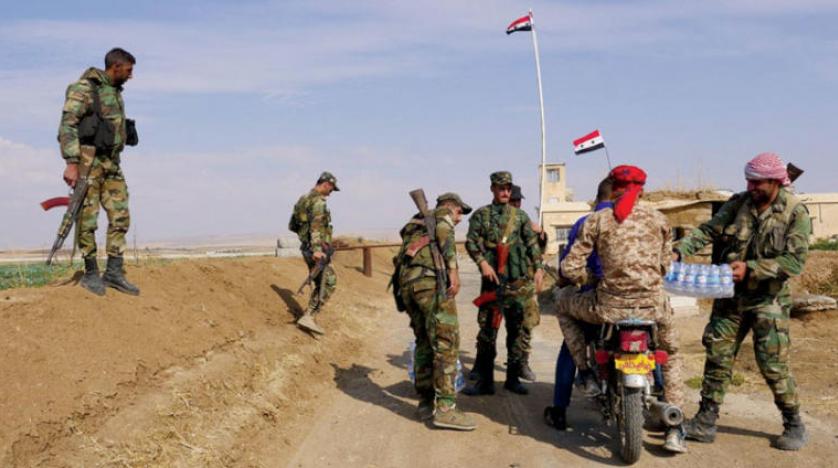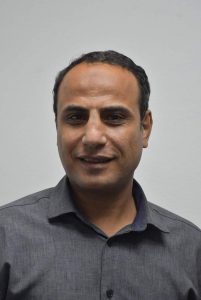The first semi-official meeting between Syrian officials and representative from the Kurdish Autonomous Administration took place in Damascus under Russian auspices in mid-July, after several previous attempts during the last two years to reach an understanding between the two sides which were unsuccessful. This last round of talks is expected to result in understandings regarding some points, as the result of a number of driving factors, including the nature of Turkish-Kurdish engagement on Syrian territories, the Syrian regime’s efforts to alleviate deteriorating living conditions, and Moscow’s desire to foster and sustain this dialogue.
This round of bilateral negotiations will be a testing ground for the political strategy each party is pursuing; the Autonomous Administration demands recognition by the Syrian regime, while the latter insists on regaining control over the oil fields in northern Syria to strengthen its ability to confront domestic issues. This recent attempt at a rapprochement has been driven by several factors, most of which have security and political implications, on the Syrian scene, the most significant of which are:
Escalating Turkish threats against the Kurds. For the Autonomous Administration, sitting at the table with the Syrian regime helps leverage its position to counter Turkiye’s military threats against the Syrian Democratic Forces (SDF) in northeast Syria. Repeated statements by Turkish officials have signaled this, including those made by Turkish Foreign Minister Mevlut Cavusoglu, on July 21, that “Turkiye does not need anyone’s permission to conduct military operations against terrorist groups in Syria.” This was preceded by statements made by Turkish President Recep Tayyip Erdogan, on 19th of the same month, on the eve of the Tehran summit with Iranian President Ibrahim Raisi and Russian President Vladimir Putin, that “It should be understood clearly that there is no room in our region’s future for separatist terror organisations.” he added that “We will continue our fight against terrorist organizations in the time to come,” and that, “terrorism [by Kurdish organizations] is a threat to all.” In an effort to block Turkish military movements in northern Syria, SDF forces turned to President Bashar al-Assad’s regime, which had been deployed some days earlier near Manbij, Tel Rifat and other areas on the border with Turkey.
Redeployment of regime forces in the north of Syria: The Syrian regime recognizes that Turkish threats of invasion in the north of Syria may pose complex challenges, at a time it is trying to reduce the presence of its regional opponents on the domestic landscape. The regime is particularly concerned over Turkish presence, as well as the expansion of Iranian presence and influence as a result ofMoscow’s preoccupation with the Ukrainian crisis.
The Syrian regime is taking advantage of Turkish threats against the Kurds to coordinate with the later on redeploying its forces Damascus seeks in the north of Syria, as a prelude to reinstating the presence and function of all state institutions and security apparatus. The SDF has in fact allowed the Syrian regime to redeploy its forces to areas threatened by the Turkish invasion, including the strategic M4 route. The Syrian regime has also deployed its forces along several axes, including Sagour, Mengh, Ayn Eissa and others.
Securing Russian interests. Attempts at effecting a rapprochement between Damascus and the Kurds are strongly linked to Russia’s desire to protect its influence in Syria. Russia feels this would safeguard its interests in Syria at a time it is preoccupied with the Ukrainian crisis, as it would send a clear message that Moscow will not allow Turkiye or other international and regional parties involved in the Syrian crisis, in particular the US, Iran and Israel, to threaten or diminish its influence or interests there.
The Russian-Ukrainian war: Although Russia’s previous attempts for constructive dialogue between the Syrian regime and the Kurdish administration in the north of Syria have not achieved significant results, developments in Ukraine have given Moscow a stronger incentive to make these efforts succeed. Russia appears to perceive that the war in Ukraine will not come to an end soon, and therefore that its confrontation with the Western, with the possibility of further sanction, will also continue.
Challenges
Therefore, it can be argued that domestic and regional developments are forcing the Kurds and the Syrian regime to make compromises in order to reach an understanding. However, there are a number of challenges that could undermine the continued implementation of any possible agreement between the two parties. At the forefront of those challenges is the position of SDF in any future security arrangements, as the regime continues to refuse to allow SDF forces to join its military ranks.
Moreover, there is still the possibility of an outbreak of clashes between Syrian regime troops deployed in the north of Syria and Turkish forces in the event the latter launch an attack, and questions regarding the ability of regime forces to repel such an attack. Taking practical steps on the ground to implement any understanding between the regime and the Kurds will also impinge on the interests and calculation of several other forces, including the US, which still consider the Kurdish militia to be a major party in the war against ISIS.
In conclusion, it can be argued that despite these challenges confronting the implementing of an understanding between the Syrian regime and the Kurdish Autonomous Administration, there are strong motivating factors driving a rapprochement. These include Moscow’s determination on moving forward with the current rounds of negotiation, and its emphasis on the importance of achieving success, as well as the current challenges faced by the Autonomous Administration in the face of Turkish threats. It is also important to note that Washington has not given any indication it would block such an understanding, even if achieved with Russian sponsorship, especially as they are in coordination with the Geneva process.


